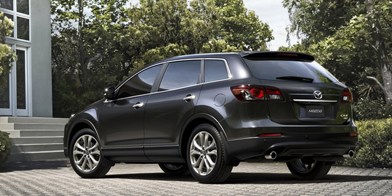Kia seems to be on a mission to become a one-stop shop for SUV engine technology. It offers standard petrol (Stonic/Seltos/Sportage) and diesel (Sorento) powertrains, but it’s also embraced electrification in a big way with hybrid, Plug-in Hybrid Electric Vehicle (PHEV) and Battery Electric Vehicle (BEV) models (all three in the Niro).
And now, hybrid technology has been added to the Sorento seven-seater. It’s pretty comprehensive: everything from petrol-electrified to PHEV, 2WD and AWD, mainstream EX or top Premium specifications.
Our test vehicle is the eco-bells-and-whistles one: the PHEV Premium AWD. It has a 1.6-litre turbo-petrol engine and 13.8kWh plug-in battery pack giving up to 57km of pure-electric range; we found around 50km very achievable in daily driving
It’s the cleanest Sorento you can buy (1.6l/100km, an incredible 36g/km) but also the most powerful, with combined output of 195kW/350Nm.
Also the most expensive of course, at $89,990. Which is nearly $10k over the Clean Car Discount cap for a $5750 rebate, although there is another Sorento PHEV option in the cashback zone: the $74,990 EX AWD.
In terms of our Premium test vehicle, look at it this way: if you commute less than 50km per day, it’s a whole lot more zero-emissions car than the $86k Niro EV (pure-electric) Premium. And still only the same price as the closely related Hyundai Santa Fe Limited, which has a conventional turbo-diesel powertrain.
The Sorento can be a set and forget PHEV if that’s what you want. As long as you remember to charge it up at night, the management system can seamlessly take care of how the powertrain is working at any given time. Actually, it will do that even if you don’t charge it up, but then you’re not getting the benefit of that pure-electric running that you’ve paid the big bucks for.
If you want to dig deeper, you’ll find a bewildering array of drive modes, in three different layers. The drive system can be set to Electric, Hybrid or Automatic. The first prioritises EV driving as long as there’s charge, although it doesn’t take much throttle pressure to wake the petrol engine.
The Hybrid setting uses a petrol-electric combo most of the time and has the dual purpose of acting like the “save” mode in other PHEVs: it will maintain the current stage of EV-battery charge within a few percent, so it’s a good one to use if you’re on the open road but want to go full-electric when you get to an urban area.
Automatic mode just does its own thing, using petrol and/or electric in whichever way the management computer decides is most efficient.
But wait, there’s more! The Sorento has another drive-mode controller that allows you to toggle between Eco, Sport and Smart, which is tailored towards steering and transmission performance rather than the machinations of the PHEV system. And layered on top of that (literally if you’re talking about the selector button) is yet another choice of “Terrain” Snow, Mud and Sand modes.
It’s not completely mix-and-match of course (you can’t select Sport while in Electric mode, for example). But it’s still a lot to take in.
The transition between electric-only and turbo-petrol power can be abrupt. But it’s sprightly with all engines/motors on duty: 195kW on tap and 0-100km/h in 8.4 seconds.
It’s an engaging drive and the petrol engine is a point of difference for this Sorento, since the non-hybrid models are all diesel.
It’s not as dynamically fluid on the open road as the diesel, though. The complexity of the power delivery plays a part, as does the extra 150kg the PHEV is carrying. But it’s a capable SUV nonetheless, especially with the Premium’s AWD system.
Light off-roading is feasible, with a 50/50 lock for the AWD; the electric motor drives the front wheels only, by the way. Towing is not its forte though, as the PHEV is limited to 1350kg.
But the Premium PHEV plays the part of luxury SUV best of all. There’s a lot that’s decidedly Mercedes-Benz-like in the cabin design and the Sorento Premium has staggering array of comfort, convenience and safety technology to offer – including new-to-class stuff like Blind-spot View Monitor (BVM), which gives you a high-res video feed from the side of the car when you activate the indicators.
Adaptive cruise control is a given, but it’s worth noting that it’s a full stop/go system and can even be used in Electric mode for city driving, which gives it one-up on the rival Mitsubishi Outlander PHEV.
The most obvious comparison for the Sorento Premium PHEV is the sister Premium diesel, at $76,990 (Combined economy 6.1l/100km). But even this appeals to a very different buyer.
If you’re doing lots of open-road driving, we’d say stick with the diesel. It’ll achieve similar fuel economy to the PHEV once you’ve used up that 57km of EV range, and it’s more composed in the corners. The tank in the PHEV is also much smaller – just 47 litres.
But if you’re a mainly urban driver, the flexibility and green credentials of the PHEV really appeal.
It’s hard to compare the running costs of the diesel and PHEV directly, because the latter depends entirely on how you use the hybrid system. But it’s safe to say it’ll take a long time recover the extra cost of the plug-in. Even if you drive on nothing but electric power, 350km per week (a full charge every day, in other words) it’ll cost you around $1500 per year to cover 18,000km.
With the diesel, at 7.7l/100km (the official Urban figure), the same distance will cost around $1400 in fuel and another $1900 in Road User Charges: total $3300. So best-case scenario, you’re only $1800 ahead per year, or seven years to break even.
But is this solely about saving money? No, of course it’s not. Driving a large, luxurious seven-seat SUV through the centre of the city and feeling eco-smug doing it is quite something. This is a step towards a cleaner future with virtually no compromise in size, comfort and presence. And don’t forget you can have that lower-spec EX PHEV for $74k.
KIA SORENTO PREMIUM PHEV AWD
ENGINE: 1.6-litre petrol-turbo with 13.8kWh lithium-ion battery
POWER: 195kW/350Nm (combined petrol/electric)
GEARBOX: 6-speed automatic, AWD
ECONOMY: 1.6l/100km, 36g/km (EV range 57km)
PRICE: $89,990





